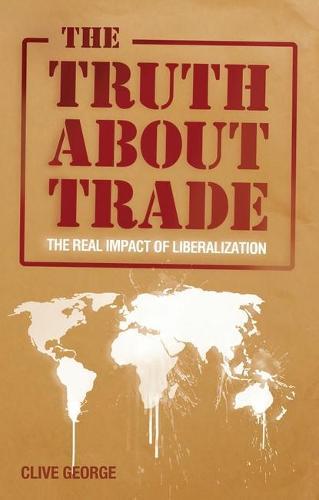Full Product Details
Author: Clive George
Publisher: Bloomsbury Publishing PLC
Imprint: Zed Books Ltd
Dimensions:
Width: 13.80cm
, Height: 13.80cm
, Length: 21.60cm
Weight: 0.340kg
ISBN: 9781848132979
ISBN 10: 1848132972
Pages: 192
Publication Date: 11 February 2010
Audience:
College/higher education
,
Professional and scholarly
,
Tertiary & Higher Education
,
Professional & Vocational
Format: Hardback
Publisher's Status: Active
Availability: Manufactured on demand

We will order this item for you from a manufactured on demand supplier.
Reviews
'Trade and trade liberalization on its own and as practiced today will not necessarily result in a more sustainable future. This is what the arguements and in-depth analysis in this interesting and thought provoking publication provide. It is a recommended reading for practitioners, trade negotiators, and policy makers concerned about making trade an effective tool for facilitating the transition to more green and sustainable economies.' - Hussein Abaza, Economics and Trade Branch, UNEP 'Clive George was at the centre of the EU's ten-year research programme into the impacts of trade liberalization. Now he is able to reveal the true findings of that research. This careful assessment of the evidence shows how trade liberalization threatens economic development, anti-poverty programmes and environmental sustainability in the vast majority of developing countries, with potentially catastrophic results. This book is an important corrective to the myth that free trade will lift millions out of poverty. It should become required reading for all people seeking to understand the truth about trade.' - John Hilary, Executive Director, War on Want 'Finally, an empirically-based assessment of the trade and globalization process that does not veer left or right, but moves the debate forward!' - Kevin P. Gallagher, Boston University
"Trade and trade liberalization on its own and as practiced today will not necessarily result in a more sustainable future. This is what the arguements and in-depth analysis in this interesting and thought provoking publication provide. It is a recommended reading for practitioners, trade negotiators, and policy makers concerned about making trade an effective tool for facilitating the transition to more green and sustainable economies. * Hussein Abaza, Economics and Trade Branch * Clive George was at the centre of the EU's ten-year research programme into the impacts of trade liberalization. Now he is able to reveal the true findings of that research. This careful assessment of the evidence shows how trade liberalization threatens economic development, anti-poverty programmes and environmental sustainability in the vast majority of developing countries, with potentially catastrophic results. This book is an important corrective to the myth that free trade will lift millions out of poverty. It should become required reading for all people seeking to understand the truth about trade. * John Hilary, War on Want * Finally, an empirically-based assessment of the trade and globalization process that does not veer left or right, but moves the debate forward! * Kevin P. Gallagher, Boston University * ...a tour de force from a practitioner in the field, which is likely to shock, and rightly so, all those wedded to the ideology of neo-liberalism. * P. Pacheco-Lopez, University of Kent * George also discusses harms from intellectual-property agreements, competition and investment policies, and regional trade agreements, before suggesting some reforms to make policy in ""the global interest"", and to mitigate ""biodiversity loss"" and global warming. ""Scientific rigour tends to be unpopular with decision-makers, who generally use the studies to support their own proposals and may prefer not to know how far from the truth the results might be."" Perhaps they have somewhat less of an excuse now. * Stephen Poole, The Guardian *"
Author Information
Clive George followed a career in industrial management before joining the University of Manchester to undertake research and consultancy on the use of impact assessment techniques in international development. As a Senior Research Fellow in the University's School of Environment and Development he was principal advisor to the World Bank on the evaluation and development of impact assessment systems in the Middle East and North Africa and has acted as a consultant to the OECD, UNEP and other international agencies. Through his work for UNEP and the European Commission he has become one of the world's leading experts on assessing the interacting economic, social and environmental impacts of international trade agreements. His books include Environment and the City (2008) with Peter Roberts and Joe Ravetz, Impact Assessment and Sustainable Development (2007) with Colin Kirkpatrick, and Environmental Assessment in Developing and Transitional Countries (2000) with Norman Lee. He has published numerous articles on sustainable development, impact assessment, global governance and international trade.




